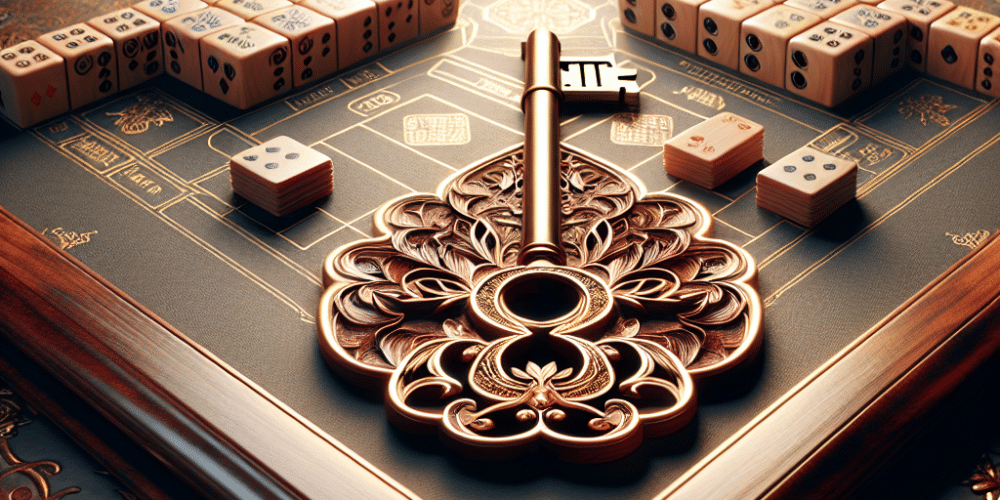Understanding the Basics of Pai Gow
Pai Gow, a game steeped in tradition and strategy, offers a unique blend of skill and luck. It’s a slower-paced, less risky game compared to other casino favorites, which involves using a set of 32 Chinese dominoes. The primary goal in Pai Gow is to beat the banker, who can be another player or the casino dealer.
Domino Combinations and Their Significance
The game starts with players being dealt eight dominoes each, from which they need to form two hands – the front hand and the back hand. The back hand must be a higher value than the front hand. Understanding the ranking of these domino combinations is crucial. For instance, the highest pair isn’t numerically sequential dominoes but rather specific pairs like military and civilian pairs. Mastery over these combinations can significantly influence your game strategy.
Advanced Strategies in Pai Gow
To elevate your game, focus on strategic pai gow practices that can help tilt the odds in your favor.
Banker Role Strategy
Choosing to play as the banker is one of the most influentially strategic moves in Pai Gow. While it entails higher responsibility, including the risk of paying out wins from one’s own pocket, the odds of winning increase. When you’re the banker, you win any copies (ties), which strategically shifts the game in your favor. Rotate into the banker position whenever possible, keeping in mind the size of your bankroll.
Setting Your Hands Wisely
While the temptation might be to always go for the strongest possible back hand, sometimes balancing your front and back hands to make both competitive is a wiser approach. For example, if dealt a particularly strong set of dominoes, it might be tempting to load your back hand with these. However, distributing strength might strategically be better to avoid a weak front hand which could lose, splitting the overall outcome to just a push against the banker.
Bankroll Management in Pai Gow
Effective bankroll management is critical in Pai Gow, as the game’s pace and structure call for endurance and smart capital allocation.
Steady and Conservative Play
Since Pai Gow is inherently a game of many pushes (ties), your playing capital can last longer, allowing more room for learning and strategy refinement. Stick to placing bets that are a small percentage of your total bankroll, avoiding the temptation to increase stakes too quickly. A conservative bet ratio maintains your position in the game longer, providing more learning opportunities and gameplay enjoyment.
Increasing Your Winning Chances
While you cannot change the dominoes you’re dealt, your handling of them can dramatically sway the game.
Observe the Banker
When not in the banker position, keep a keen eye on how the banker sets their hands. Most seasoned players exhibit patterns or tendencies in their plays. Learning from their strategies and understanding their weaknesses can give you a crucial advantage when it’s your turn to set your hands or when you decide to challenge the banker role.
Collaborative Play
Pai Gow is unique in that players often openly discuss their hands and strategies during the game. This is generally legal and can be beneficial. Engage in discussions with fellow players; this can provide new insights and strategies on setting hands which you might not have considered on your own.
Practical Takeaways for Pai Gow Enthusiasts
To truly excel at Pai Gow, immerse yourself in understanding the significance of each domino and the various combinations. Practice decisively setting your hands, not just for strength but also strategically to challenge your opponent. Rotate into the banker position prudently, evaluate risks, and manage your bankroll to sustain long gameplay sessions. Finally, leverage community gaming aspects by learning from peers and observing patterns in gameplay tactics.
Through these strategic insights and practical tips, your journey in mastering Pai Gow can become both enjoyable and potentially more profitable, offering a rich experience deeply rooted in cultural history and strategic depth.

















